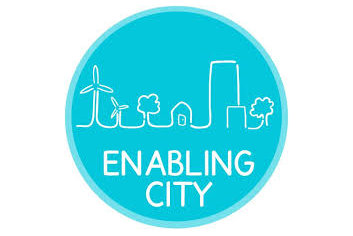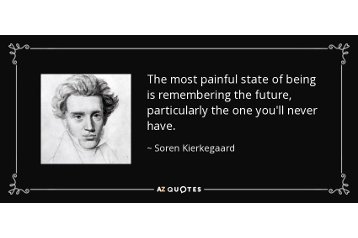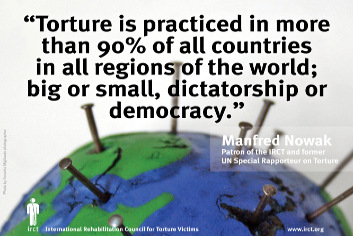
Arturo Rivera Perez
Well-known recent data mismanagement events have put data governance high on the political agenda, certainly from the perspective of citizens’ digital rights. For governments, data governance is now what open data was back in the 2000s or even before. Yet, it is something everyone talks about and everyone wants to engage in, but only a few fully understand. As seen before with other tech trends, data governance is becoming the new buzzword (or concept) used by politicians and policy makers.
Good data governance ensures the trustworthy, reliable and value-oriented management and sharing of data, both within and beyond the public sector.
So, how do we move from the buzz to the real-world implementation of data governance? It is tricky, as we first need to understand what data governance is and what it means. There is a library of good reads out there touching on this and other challenges, but it focuses mostly on private sector practitioners. The implications and applications of data governance, in the context of the public sector, have not been widely discussed.
This is where our work at the OECD comes into play. We recently published ‘The Path to Becoming a Data-Driven Public Sector’ which explores the key policy issues related to the sharing and use of data by the public sector.
In the report, we propose a public sector data governance framework at the national level, we stress how it helps build solid foundations to best use data for the benefit of citizens, and we discuss how data initiatives should be framed in the context of trust, data protection, privacy, security, and ethical behaviour.
Drawing upon the analysis presented in our report, and keeping in mind that there are too many challenges relating to data governance to address in this piece, I would like to drop here some few key issues to consider when embarking on data-related practices with a focus on public sector practitioners.
First, stop.
While there will always be a political need to deliver policy results as soon as possible, sometimes a pause to assess what has been achieved so far and put the pieces together is very useful. For instance, one of the big challenges we see in terms of data governance is fragmentation, not with regards to data silos (we all know that is a common issue in the public sector), but more regarding policy silos.
Data sharing within the public sector, open data and even AI share common foundations. Yet, sometimes the only connection between these policies happens on paper. The Irish acknowledged this was becoming a major problem as increasing numbers of organisations engaged on data initiatives and digitalisation. Thus, public sector cohesion is a key driver of Ireland’s Public Service Data Strategy.
Good data governance leads to cohesion and integration, but those are important policy goals that exceed the technical domain. Do not forget that. Also, public officials often ignore how important data production is and focus more on data collection just to realise this too. Public sector data, and data in general, is an important input of the evidence base that governments and the public sector can use to design, deliver, implement and evaluate policies and services.
When we completed the OECD Digital Government Review of Argentina, we found the Argentinians understood that data reuse at a later stage (e.g. inside the public sector or as open data) required taking action during the earlier stages of the data value cycle. As a result, they used a ‘Data as a Service’ approach that focused on the production of good quality public sector data from the source.
Keeping aside the discussion on the potential biases of decision-making models, remember that bad data can lead to badly designed policies, badly targeted services, and even worse results.
Second, start by asking some (relevant) questions such as:
• Are we clear about the purpose of using data? Some public officials still think data governance or open data are the policy outcome, not the means.
• Who does what? Who leads? Who coordinates? Do you have the right people networks in place? People and culture are huge drivers of success in any data initiative, but so is accountability, particularly in terms of data stewardship.
• Are the “rules of the game” clear and / or available? If not, improve them.
However, you should also ask yourself if someone else out there is trying to implement a similar initiative or has already done so. Operationalising data governance requires tools that someone else in the public sector might have already created. You can reduce duplication and avoid wasting resources by reaching out to others. Be proactive.
Scalability is a basic principle of Government as a Platform. Do not forget good data governance is also about making the most of those tools. A good example is the development, by the USA, of a Data Federation model for the public sector.
Be open and pragmatic
The ecosystem enables practitioners from all sectors to help each other to identify potential problems. Engaging the ecosystem, for instance when developing a National Data Strategy like in the UK, can also help in building ownership. Engagement and collaboration can also help to build trust and take full advantage of the tools available.
Actively seek transparency in the use of citizens’ data.
Governments can publish as many data and ethical frameworks, principles, and guidelines, as they like, but how can citizens really know how their data is used? An important point to remember is that the discussion around ethics in the context of the public sector is not new.
In the context of public sector integrity, ethics is a widely explored area. Contact colleagues working in that area to find out how to improve on existing governance structures, if possible, so that your data governance programme runs as smoothly as possible.
Additionally, how do you put into practice important issues such as consent in the context of collaboration? Data governance goals need real-world data governance tools. See how some organisations in the UK are starting to work on this as part of their work on Data Trusts.
Public sector cohesion, intelligent data production, openness and co-operation with others working towards shared goals, can go a long way.
Remember to keep an eye on the context though, because it changes – and your data governance structures should too in order to stay relevant. So do not forget to be agile whenever possible to avoid creating the legacy you once addressed.
Arturo Rivera is a Policy Analyst at OECD










